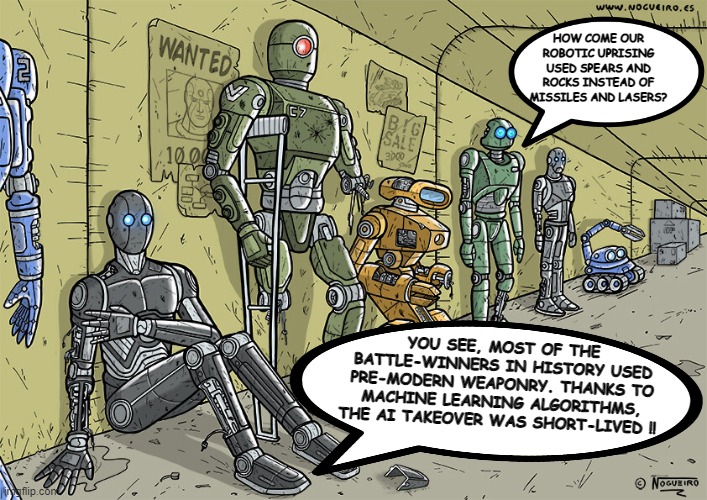AI and the Military
Currently negotiations are going on in the world to effectively manage AI use for military purposes.
In South Korea last week 60 nations endorsed a “blueprint for action” outlining permitted military uses of AI. China was among 30 countries that refused to support the non-binding outline. This needs to be understood as a political statement as much as it is a treaty.
The Responsible AI in the Military Domain Summit (REAIM)
This followed a similar meeting in the Hague last year. At that meeting 60 nations, including China, agreed to a general “call to action" on the subject. This year’s blueprint called for more action than last year’s call, attendees said.
Officials discussed latest war developments, especially Ukraine’s AI-enabled drones. Ukraine endorsed last week’s document. Ruben Brekelmans, the Netherlands’ defence minister, said;
Last year...was more about creating shared understanding...We are making further concrete steps. Now we are getting more towards action.
Those actions include deciding how to assess risk, establishing human controls, and building confidence that risks can be managed effectively.
The document stated the need to ensure that AI is not used to spread weapons of mass destruction by terrorist groups and other bad actors as well as emphasizing the importance of maintaining human control in deploying nuclear weapons and not assigning that role to a bot.

Terminator 3 rise of the machines
Brekelmans added, referring to China and the other nations that sent representatives to the meeting but withheld their support of the document;
We also need to be realistic that we will never have the whole world on board.
How do we deal with the fact that not everyone is complying?...That is a complicated dilemma that we should also put on the table...
South Korea has said it will use the blueprint to introduce the subject of AI’s military uses at the UN General Assembly in October.
Giacomo Paoli, an official with the UN Institute for Disarmament Research, urged countries to keep talking among themselves outside of formal meetings but also urged a gradual approach to seeking consensus. He said;
the blueprint is an incremental step forward, [but] by going too fast, too soon, there is a very high risk that many countries do not want to engage.

